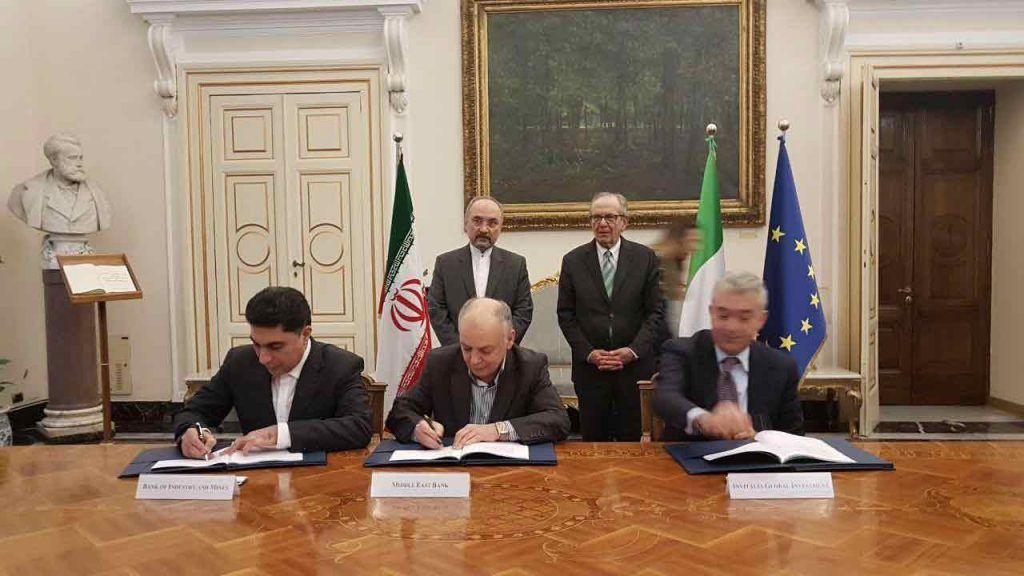By Ahmad Rafat
On January 11, Italy and Iran signed a framework credit agreement worth 5billion euros, which will help Italian companies invest in Iran.
The agreement will allow Invitalia, an Italian state-own holding company, to open lines of credits to two Iranian banks: Bank of Industry and Middle East Bank. Iran’s Deputy Minister of Economy and Finance Mohammad Khazaei and Italy’s Minister of Economy and Finance Pier Carlo Padoan were present at the signing ceremony in Rome.

“This is the most important credit agreement with a European country. It is a significant political and economic development. It shows that Europe is fully committed to strengthening its ties with Iran,” Khazaei said after the signing ceremony. He added: “This agreement delivers a decisive blow to those who aim to undermine the JCPOA” [the Joint Comprehensive Plan of Action, also known as the Iran nuclear deal].
The funds will be used for projects carried out jointly by Italian and Iranian companies in various sectors including infrastructure, construction, oil and gas, electrical energy, and the chemical, petrochemical, and metallurgical industries.
“This credit agreement will improve cooperation between Iranian and Italian companies. Italy will be able to maintain its position as Iran’s main economic partner in Europe,” Minister Padoan told reporters.
Iran exported close to $8.4 billion worth of products to EU member countries in the first 10 months of 2017 — a 109 percent increase from the previous year.
Italy was the largest importer of Iranian oil, gas and petrochemical products in 2017, followed by France, Spain, Greece, and Holland. Italy’s imports from Iran rose 315 percent in the first 10 months of 2017, equaling $2.6 billion. German and Italian exports to Iran for the same period stood at $2.4 billion and $2 billion respectively.
Italy is not the first European country to open a line of credit to Iran. Earlier in 2017, Austria and Denmark signed credit agreements with the government of President Hassan Rouhani worth $1 billion and $500 million respectively. China and South Korea have also opened lines of credit to Iran worth $10 and $8 billion, respectively.
Italy recently passed a law which allows the government to open lines of credit to high-risk countries such as Iran. This will encourage Italian manufacturers and financial institutions to invest in Iran with a greater degree of confidence.
The recent agreement between Iran and Italy does not, however, mention any specific Italian banks. “Italian banks fear the fresh set of sanctions imposed on Iran by the U.S.,” an official at Italy’s Department of Treasury told Kayhan London.
Banca Intesa, a major Italian bank with branches in Europe, Asia, Africa and Latin and North America, considers Iran “a high-risk country for investment.”
Opposition groups in Italy believe that there is a direct correlation between this agreement and the government’s unwillingness to support the recent popular unrest in Iran.
Marco Orioles, a columnist for the Le Formiche online news site, told Kayhan London: “ Until now, we weren’t certain why the Foreign Ministry and the government had refrained from criticizing the Iranian regime for cracking down on the protesters. But it is clear that their silence is worth 5 billion euros.”

